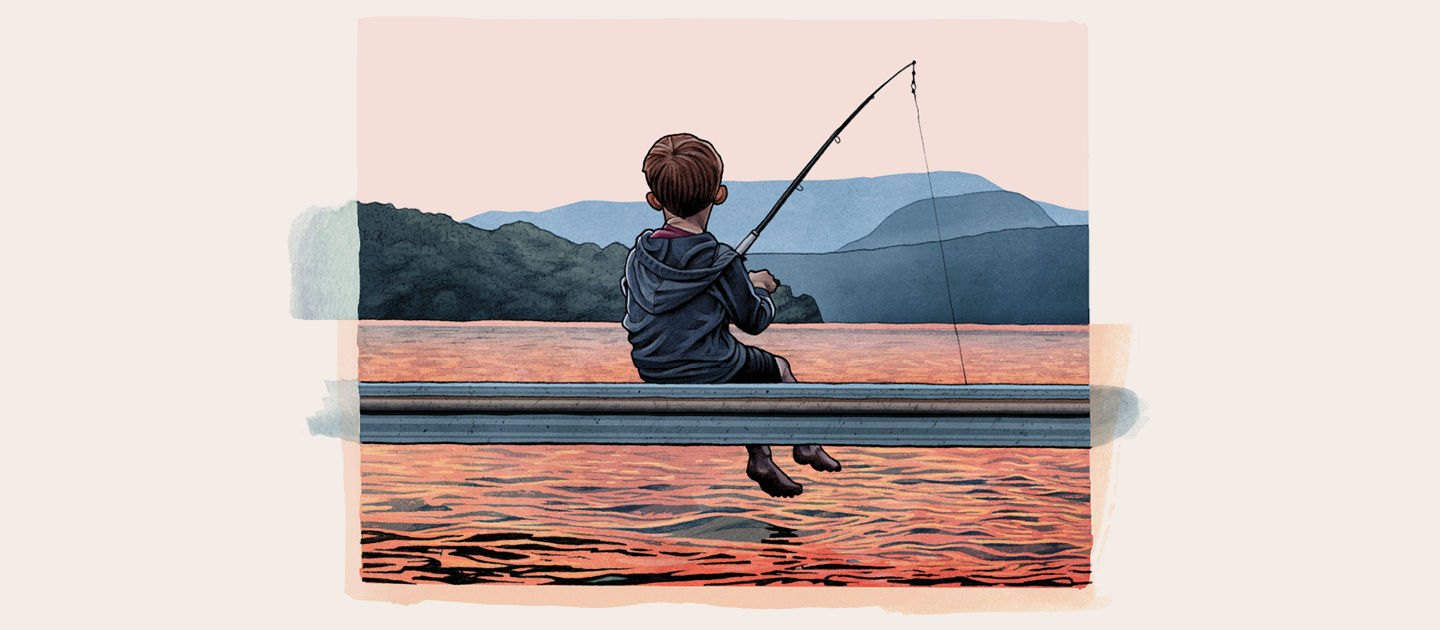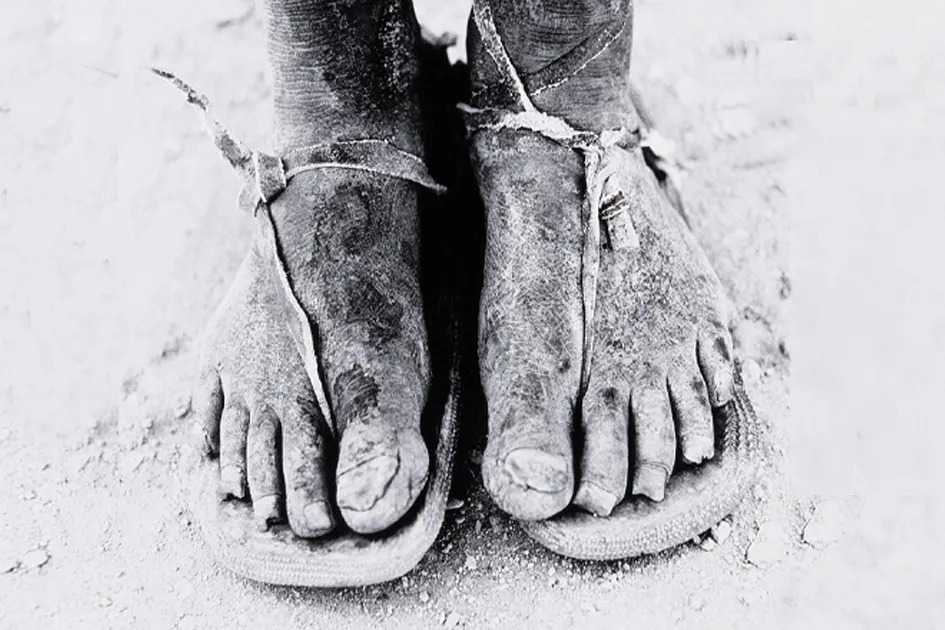[Perfectionism] is a form of enslavement that comes from a person finding his value in his ability to perform. A perfectionist tends to be afraid of admitting any faults—because doing so would devalue him. So he strives to master and control every aspect of his life. Often, this means setting unreasonable standards that are impossible to reach or maintain … Friend, you do not have to look a certain way, have a lot of money or success, or be perfect in your performance in order to be loved. In fact, your attempts to prove your worth may actually be turning people away.
—Charles F. Stanley, Emotions: Confront the Lies, Conquer with Truth
It could have been a fishing trip that never happened, if it weren’t for one artifact: the fishing rod, striped orange and white. It was the only evidence I had in the years after to support the faint impressions of my imagination: sleeping in an RV, away from home for the first time; flaming marshmallows on unbent clothes hangers; my uncle’s young, mustached face. He and my aunt had invited me to take a lake trip, and the rod had been their gift. But as is often the case with childhood memories, imagination is more powerful than what I actually remember. I can picture the fish in my hands, its cold silver body slipping from my fingers into the bucket. The fire licking July sky as my uncle separates muscle and flesh from bone with his cleaning knife. Yet it’s all a dream—a momentary lapse into another life that exists only because of what came after.
For weeks after that trip, I stood in my parents’ backyard, surrounded by other homes and undeveloped tracts of desert land. My feet on some imaginary riverbank, arms casting over and over into crisp bermudagrass—attempting to perfect my technique. And why? I never did go fishing again after that trip, not until I was much older and that orange and white rod had long been trashed. There was something about rehearsing the motion that compelled me. Something about getting it right was more important than actually catching fish.
The rod is just the first example. I practiced that obsessive hyper-focus in a multitude of versions over subsequent years—hitting a tennis ball against the garage door, until the surface was pocked with dusty circles; running soccer drills in the backyard until my legs ached; learning to ollie on my skateboard through many bruises; and tenderizing fingers playing that one guitar solo. Hour upon hour, rep after rep—I’ve been doing some variation of this dance my whole life.
Forty years into my life I can confirm that perfection remains elusive, like trying to catch a fish in freshly mown grass.
I want to be good at what I do. There’s nothing wrong with that—not on the surface, anyway. And there’s no denying that the mastery of tasks and activities I enjoy has deepened my experience of them. It’s intensified my satisfaction and, in some cases, has even made me a little money. And yet, 40 years into my life I can confirm that perfection remains elusive, like trying to catch a fish in freshly mown grass. This tendency has played a role in many positive experiences I’ve had, but it’s also cost me along the way, and the stakes have been highest in my interior life. There have been moments that the expectations I place on myself spill over to others, even if unconsciously, creating distance in my relationships. In some twisted way, my obsession with becoming perfect—a goal I’ve never been able to realize in any facet of life—morphs into a burden the people I love never agreed to carry.
I’m reluctant to admit it, but somewhere beneath all the practice and performance and achievement—and the valid pursuit of excellence and joy in a job well done—is the nagging question of my love-worthiness. And the lack that I feel there is one that undermines my ability to thrive in community, beginning with my roles as husband and father and extending onward to friends and colleagues alike.
Somewhere beneath all the practice and performance and achievement—and the valid pursuit of excellence and joy in a job well done—is the nagging question of my love-worthiness.
For reasons I have yet to fully comprehend, I must acknowledge that I’m still trying to earn the affection of God and others, which in the end is the greatest catch of all—to be seen and loved for who I really am. Nothing less, and nothing more. Never mind that there’s little indication, if any, that the people in my life—not to mention God—are withholding their care for me. But to be worthy of love isn’t anything like catching a fish. It’s less about taking hold of what I want and instead letting myself be taken—laying down my insufficient tools, my not-quite-there skills, and simply walking into the water to receive its coolness. To let the surface close over my head before I come up again into the glittering sun as it ripples all around my smiling, peaceful face. How much better would it be to look around from that vantage point and see all the people I love similarly immersed—not weighed down by the chains of perfectionism—mine or theirs—but splashing around, joy-filled and free.





